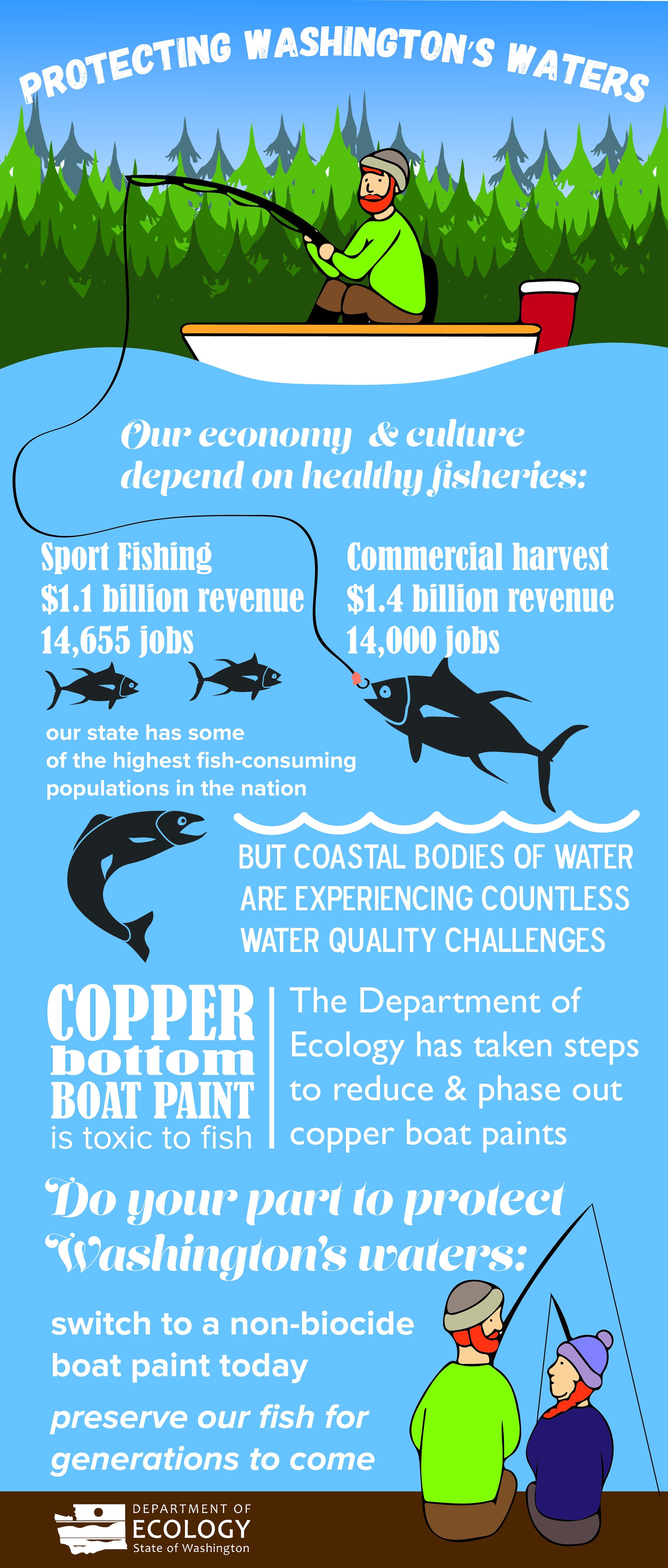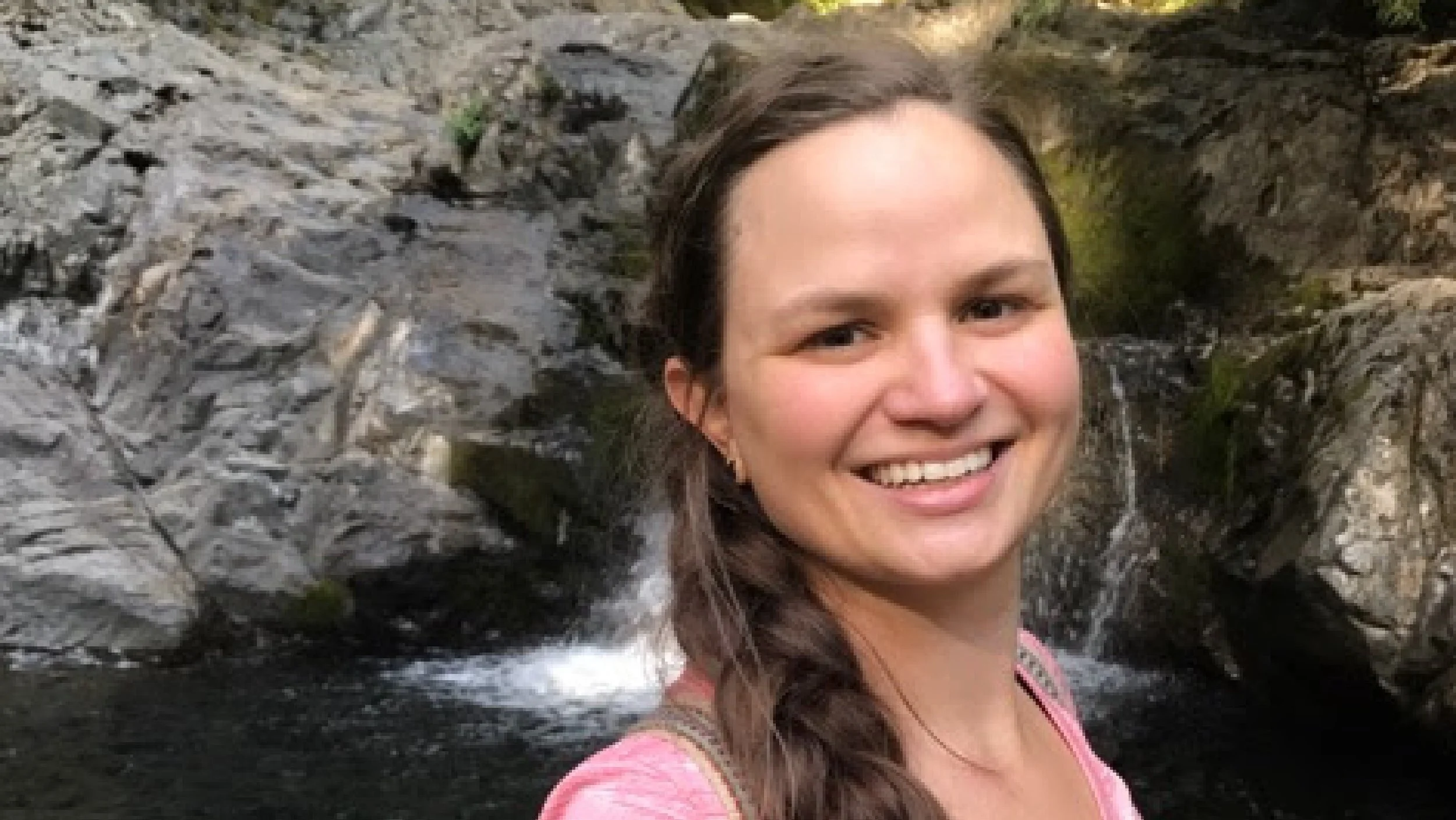New health equity manager brings wealth of knowledge and experience to HCA
A political refugee from Vietnam, Dr. DoQuyen Huynh, who goes by “Quyen,” came to Seattle at age 11 with her parents and four siblings.
She found herself acting as the family’s translator, and helping her parents navigate a complex and unfamiliar public health care system at a time when resources for interpreters were limited, and social determinants of health were not a focus in health care delivery. This childhood experience defined her life’s work to help immigrant and minority groups access culturally sensitive health care.
Dr. DoQuyen Huynh, HCA health equity manager.
Quyen is a family nurse practitioner and spent a decade as a leader at a community health center in Seattle’s International District — one of the most diverse zip codes in the country. She also is a national leader on nurse practitioner post-graduate education, training the next generation of clinicians to better meet the health care needs of underserved and diverse populations. She teaches at Seattle University and directs the College of Nursing’s Family Practice Program, which focuses on social justice and health equity. Her goal is to break down barriers to care and promote evidence-based health care through education, clinical practice, and policies.
The importance of health equity today
The Health Care Authority (HCA) defines health equity as everyone having a fair and just opportunity to be as healthy as possible.
The circumstances in which individuals live, work, and play determine health outcomes — called social determinants of health. These include access to good jobs with fair pay, a safe neighborhood environment, availability of healthy food, access to quality education, health care, community support, and stable housing. Other obstacles also affect health equity — such as poverty and discrimination.
The social determinates of health are the many factors that play in to someone’s overall health and well-being. Infographic design by Stephanie Malham.
In spring 2020, HCA recognized the need for a health equity manager. We wanted to help ensure we are providing equal opportunity to the diverse populations we serve: more than 2.5 million Washington residents through Apple Health (Medicaid), the Public Employees Benefits Board Program, the School Employees Benefits Board Program, and the COFA Islander Health Care Program.
The opportunity for a better future
HCA strives for continuous improvement throughout the agency. Being the first health equity manager for HCA, Quyen will help make tremendous impact in peoples’ lives by making health equity actionable and sustainable with the support of HCA staff, community partners, and stakeholders.
“HCA already has a good foundation to build upon, and I look forward to working with staff across the agency to integrate equity in a strategic and systematic way,” said Quyen.
Through the agency Health Equity Workgroup, HCA has drafted a strategy for incorporating health equity principles into operations, programs, and initiatives. This effort supports Governor Jay Inslee’s mission of a healthier Washington.
“I’m really proud of HCA for seeing the need for this important work,” said Quyen. “Every policy and action HCA is involved in directly impacts health outcomes of individuals, and with an equitable approach, low income and disadvantaged populations have a better chance at living a healthy life.”
For more information about the Governor’s Interagency Council on Health Disparities, visit the Health Equity website.
A bottom-up approach to saving salmon and protecting the environment
If you're boating in marine waters, you can play an important role in protecting water quality in Washington. It starts with changing the paint on the bottom of your boat. Copper, a common ingredient in many of these paints, is highly toxic to salmon and aquatic life.
Infographic emphasizing the importance of fish-safe boat paint. Infographic designed by Stephanie Malham.
Back in 2007, a study found high levels of copper in Washington marinas – most of it coming from antifouling paints. That led the Legislature to pass a law phasing out the use of copper-based bottom paints beginning in 2018.
Under the law:
Jan. 1, 2018 – Sale of new recreational vessels with copper antifouling paint banned
Jan. 1, 2020 – Sale and application of antifouling paint containing more than 0.5% copper for recreational vessels banned
Similar regulations are being considered in other states and countries.
Copper is especially harmful to young salmon. Salmon fisheries are a major source of sustenance and recreation in Washington. The Department of Fish and Wildlife reports that fishing accounts for $2.5 billion of revenue every year, and supports over 28,000 jobs in the state. Fishing and boating also support local communities depending on recreational tourism.
Antifouling paints are not new. For many years, tributyltin-based paints were the standard. When concerns arose about the environmental effects of tributyltin, copper became the preferred alternative. Now we're finding copper is also harmful to aquatic life.
Ecology and Northwest Green Chemistryare partnering together to find safer alternatives for copper boat paints. Our goal is to find effective products that won't turn out to be another regrettable substitution – a replacement of toxic chemical with chemical of equal or greater toxicity – like copper was for tributyltin.
Many alternatives to copper-based paints are already on the market. Northwest Green Chemistry is working with boaters to develop a scorecard of paintsand costs to help boaters select coatings.
You can get ahead of the copper phase out and help protect aquatic life by switching to a non-biocide boat paint now. When you clean your boat, use safer cleaning products and don't clean your boat while it's in the water.
To learn about other ways you can help, visit Ecology's clean and green boating page.
Removing behavioral health stigma, one story at a time
One of the most effective ways to counteract stigma about substance use disorder and mental illness is through stories of those who have lived experience with these issues.
Richelle Madigan with her youngest child at her home is Moses Lake, Washington.
Two members of HCA’s Behavioral Health Advisory Council (BHAC) recently shared their stories of hope as part of the council’s efforts to remove stigma.
Helping families overcome stigma - Richelle’s story. Video by Stephanie Malham.
Richelle Madigan, a mother from Moses Lake, shared her story about raising a child with mental health issues. Parents of children with behavior disorders often face stigma from strangers, friends, and even family members. Fear of being judged or blamed for their child’s mental illness prevents families from seeking the help they need. After years of advocating on behalf of her family, Richelle received help and her child now lives successfully in a group home.
Reshaping the way we think about SUD — Susan’s story. Video by Stephanie Malham.
Susan Kydd started drinking at age 13, and eventually began misusing opioids. When Susan started treatment, she noticed that many of the participants were angry at themselves for needing help. Susan is now celebrating more than 20 years in recovery, and helps share the message that substance use disorder is a treatable disease, not a weakness.
The Behavioral Health Advisory Council (BHAC) includes community members, government stakeholders, and public partners. At least half of the council members have lived experience with substance use disorder and/or mental health issues. BHAC advises and educates HCA on planning and implementing effective, integrated behavioral health services, and promotes individual choice, prevention, and recovery.
Original blog post: https://medium.com/wa-health-care-authority-connect/removing-behavioral-health-stigma-one-story-at-a-time-3c2ca6f5a8f6
After accident, hiker gets the care she needs through Apple Health
While in college in 2014, Kayleigh went hiking with a friend with the ambitious goal of summiting an 11,000 foot mountain in Utah. Shortly after summiting, they could see a thunderstorm rapidly rolling in. Kayleigh’s survival instincts kicked in.
“There wasn’t anywhere we could take cover. I remembered the best way to avoid being struck by lightning in the open was to keep in motion,” Kayleigh said.
Kayleigh King poses in front of a waterfall while on a hike years later.
She and her friend scrambled down the mountain to get out of the storm, running over sharp, loose shale in their hurry. When they encountered a rocky ledge they couldn’t find a safe way down. Kayleigh’s friend went first, but slipped and fell on her head. Terrified of falling herself, Kayleigh tried a different way down, but the rocks she clung to crumbled in her hands. She fell onto the uneven ground below and rolled for several feet.
“My friend asked if I was okay, and I said I was to keep morale up, but it felt like my leg was dislocated,” she said.
Later, Kayleigh found out her pelvis was broken. It took search and rescue more than three hours to locate and transport them to the hospital.
That was the beginning of her journey back to health, which took more than a year. During that time, Kayleigh turned 26 — meaning she would no longer be able to stay on her parents’ health insurance. Kayleigh still had a lot of physical therapy to do, and finding a job while she was in recovery was proving to be difficult.
As the anniversary of her accident drew near, Kayleigh began to experience severe anxiety, likely from the trauma she endured. With the added worry of having no health insurance, the anxiety grew to the point that it began interfering with her daily life.
While searching for options online, Kayleigh found out about Washington Apple Health (Medicaid). She applied online at Washington Healthplanfinder and was approved for free health care. She was able to continue with her physical therapy treatments, and also found counseling for her anxiety.
Today, Kayleigh continues to get the health care she needs without worrying about how to pay for it.
Just a few years before Kayleigh’s accident, the Affordable Care Act was passed, allowing for Medicaid expansion. More than 550,000 additional single adults have access to free or low-cost health care in Washington thanks to that expansion.
Original blog post: https://medium.com/wa-health-care-authority-connect/after-accident-hiker-gets-the-care-she-needs-through-apple-health-dfe94f510a73
Apple Health client inspired to help others access health coverage
Ronni, mother of six, knows what it’s like to not be able to afford the resources her family needs. When she lost her income due to a work-related injury, she became homeless with her 1-year old son. Over the next several years her Washington Apple Health (Medicaid) coverage offered stability. She found quality health care and a doctor who supported her, through a medical crisis. Ronni’s personal experience inspired her to help others access health care coverage.
Ronni, a Washington Apple Health (Medicaid) client, enjoys helping others get the health care they need.
With the implementation of the Affordable Care Act (ACA) in 2014, Ronni had the opportunity to became a Washington Healthplanfinder assistor and help homeless individuals sign up for Apple Health coverage. Today, she applies her experiences as a community health worker and certified crisis counselor at her local Accountable Community of Health (ACH). Here are a few stories from individuals Ronni has assisted.
While doing outreach, Ronni met a homeless individual with health complications from untreated cancer. He needed help understanding why his Apple Health benefits weren’t active. Ronni reenrolled him in Apple Health so he could get the surgery he needed. He told her that without health coverage and the support she provided he wouldn’t have made it.
A mother and son had been homeless for two years. The son’s behavioral health care needs made it difficult to maintain their housing. Through the Foundational Community Supports (FCS) program they found stable housing in their community. The supportive housing element of the FCS program allows Ronni to advocate for them by assisting with landlord relations and crisis management.
During the pandemic, Ronni uses telehealth to help Apple Health client’s access COVID-19 testing and treatment resources. Telehealth is the standard method used for her peer counseling appointments, reserving in person visits for individuals experiencing a behavioral health crisis. Ronni shares that connecting with others virtually reduces feelings of isolation in her clients.
Since the ACA, more than 800,000 new individuals have received Apple Health coverage. Programs such as Foundational Community Supports allow Ronni and other community health workers help clients access these benefits. This aligns with her ACH’s vision of being a vibrant, healthy community in which all individuals, regardless of circumstances, have the ability to achieve their highest potential.
Free or low-cost health care coverage may be available to those whose finances are impacted by recent events. See if you’re eligible for Apple Health coverage. Enrollment is available year-round. You can apply online at Washington Healthplanfinder.
Voices of Apple Health
Has Apple Health positively changed your life? We’re offering a $50 gift card if we use your story! We want to share your story to inspire others who don’t have health insurance to sign up for free or low-cost health coverage.
Visit our Voices of Apple Health series for more information and to submit your story. Thanks for helping us reach others who can benefit from Washington Apple Health!
Foster parent helps kids get overdue medical care through Washington Apple Health (Medicaid)
Megan has been a foster parent in the Olympia area for several years, her home being a known safe place for social workers to place kids whose families are in crisis.
Megan’s two children, adopted out of the foster care system.
All foster care children in Washington are enrolled in Apple Health Core Connections, part of the Health Care Authority’s Apple Health (Medicaid) program.
Over the years Megan has fostered many children, most coming to her with incomplete medical care. The situations they come from don’t always have the structure or support for making sure the child has been to the doctor or had their health needs met.
For example, Megan helped a 4-year-old girl get the glasses she badly needed before she went back to her biological family. Her family had been struggling too much to help get her the complex care she needed.
“Because she was placed with me and I had Apple Health coverage for her, I could take her to see the specialists she needed to be diagnosed and treated for her vision problems,” said Megan. “Even though she was back with her family quickly, at least now they knew what her needs were and had a care plan in place.”
As a crisis placement foster parent, Megan is used to the unexpected. Both of her adopted children came to her suddenly. Once, she was even handed a baby at 2 a.m. in a Target parking lot.
Megan’s daughter came to her on an evening when she was downtown eating dinner with a friend with plans for a movie afterward. She got a call from a social worker asking if she could take a 5-month-old baby immediately. She left dinner and met the social worker to get the baby girl. Eventually she was able to adopt her.
Her son was placed with her at birth a couple years later. Megan and her daughter were on their way to the airport to visit her parents for Thanksgiving when her phone rang. A newborn had been left at the local hospital for adoption and the social worker asked Megan if she wanted him. She dropped all her plans, and instead of going to the airport, she picked up the baby and dashed to the store to buy everything a newborn would need.
To encourage adoption, children adopted out of the foster care system retain Medicaid coverage until they are 18. Megan also had health insurance through her employer to cover her children, and qualified for the premium payment program, which will reimburse premiums for private health insurance coverage when an Apple Health (Medicaid) client has access to private health insurance coverage.
“I feel very fortunate to not have any health care costs for them,” Megan said. “If they get hurt on the playground or something, I don’t have to worry about where I take them for urgent care, deductibles being met, or anything like that, because it’s all paid for with the double coverage.”
Both of her children were born with minor health impacts from methamphetamine exposure, which can sometimes take years to surface. Both kids came from families with multi-generational substance misuse. Because they are covered by both Apple Health and her other insurance until they are 18, it helps give Megan peace of mind if some treatment is needed later in her children’s lives.
To find out more about becoming a foster parent or adopting a child out of foster care, visit the Department of Children, Youth and Families website.
Original blog post: https://medium.com/wa-health-care-authority-connect/foster-parent-helps-kids-get-overdue-medical-care-through-washington-apple-health-medicaid-bae094095234







